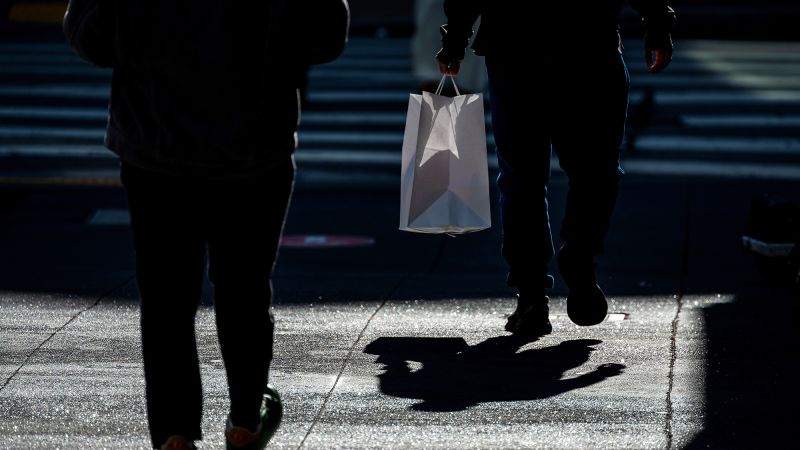In early February, John Schwarz, a self-described “mindfulness and meditation facilitator,” proposed a 24-hour nationwide “economic blackout” of major chains on the last day of the month. Schwarz urged people to forgo spending at Amazon, Walmart, and all other major retailers and fast-food companies for a day. He called on them to spend money only at small businesses and on essential needs. “The system has been designed to exploit us,” said Schwarz, who goes by “TheOneCalledJai” on social media, in a video to his roughly 250,000 followers on Instagram and TikTok. “On February 28, we are going to remind them who really holds the power. For one day, we turn it off.”
Schwarz, 57, has no background in social or political organizing. Until early this year, he almost exclusively posted videos of himself offering inspirational messages and motivational tips sitting in his home, backyard and shopping mall parking lots. He had low expectations for his boycott message gaining traction. “I thought maybe a handful of my followers would do it,” he told CNN in a phone interview this week.
Instead, Schwarz’s call rapidly spread online. His video has been shared more than 700,000 times on Instagram and viewed 8.5 million times. Celebrities such as Stephen King, Bette Midler and Mark Ruffalo have encouraged people to participate. Reporters wrote and aired TV pieces about the boycott, propelling it further.
The “economic blackout” effort is relatively uncoordinated and nebulous. Experts on consumer boycotts and corporate strategy are dubious that it will make a dent in the bottom lines of the massive companies it targets, let alone the vast US economy. Effective boycotts are typically well organized, make clear and specific demands and are focused on one company or issue.
But this boycott has gained strength online because it has captured visceral public anger with the American economy, corporations and politics. “There’s the sense that a lot of people want to do something. Doing something in the American context has often meant using pocketbook politics,” said Lawrence Glickman, a historian at Cornell University and author of “Buying Power: A History of Consumer Activism in America.” “This a way of engaging in a form of collective action outside of the electoral arena that makes people feel some connection and sense of potential power.”
People online say they want to join the boycott for many different reasons. Some are commenting about high prices and the cost of living. Others are angry about the power of large corporations and billionaires such as Elon Musk. Some are pushing back against the Trump administration’s efforts to gut federal programs and fears about an autocracy in America. Yet others want to boycott companies rolling back their diversity, equity and inclusion (DEI) policies.
Schwarz scrambled as a result of the response to create a group. He called it The People’s Union and describes it on its new website (that is frequently down) as a “movement created by the people, for the people to “(take) action against corporate control, political corruption, and the economic system.” He has raised around $70,000 in donations on a GoFundMe page that solicits funds for social campaigns, legal advocacy and other efforts. He has also called for more targeted boycotts in the coming weeks against specific companies, including Amazon and Walmart. (Walmart declined to comment to CNN. Amazon did not respond to comment.)
Although the response online appears to be strongest from the political left, Schwarz has no ideology that could be considered consistently progressive or conservative, at least along the traditional US political spectrum. He does not belong to either political party, but he supports Bernie Sanders. In recent posts, has advocated for the end of federal income tax, term limits in Congress, universal health care and price caps.
The boycott has “spread so well because people have just had enough and they’re fed up and they’re tired,” Schwarz said.
— news from CNN
